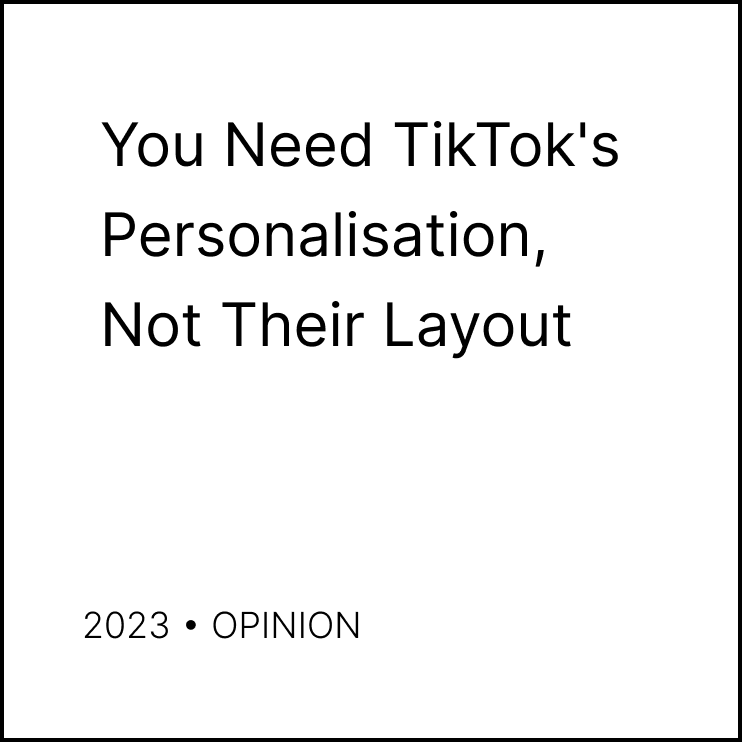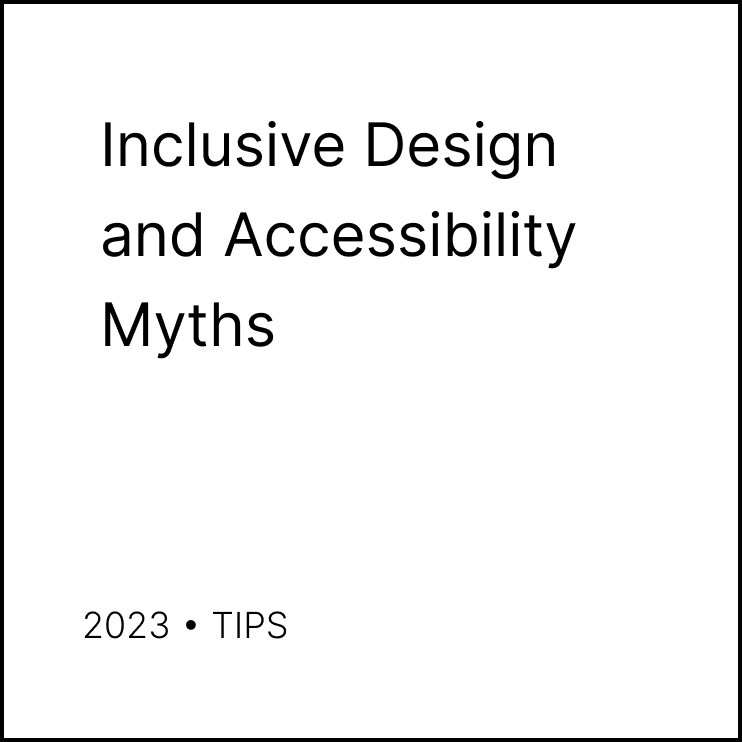The startup world is crowded with engineers-turned-CEOs and MBA graduates chasing scale. But a critical voice is still missing: that of the product designer.
With over a decade in product design, I’ve seen how designers sit at the crossroads of user needs, product strategy, and business goals — often acting as the glue that holds early-stage teams together. We may not write code, but we bring something equally essential: deep empathy for what people truly want and need.
That sounds like the ideal foundation for a founder. Yet designer-led startups remain rare. So what’s stopping more designers from making the leap — and why should they?
The Untapped Potential of Designer-Founders
Designers often downplay the weight of their expertise in early-stage product building. But in reality, startups live or die by product-market fit, and that starts with understanding users, something designers excel at. We know how to spot pain points, we know how to prototype ideas quickly, and we know how to shape experiences that actually resonate.
In today's tech world, where building is faster than ever (thanks to AI, no-code, and open-source tools), having the ability to identify real human needs is just as valuable—if not more—than being able to write code.
This unique position gives us several entrepreneurial advantages that are often overlooked:
Deep User Empathy: Unlike many founders who fall in love with their technology first, designers are trained to start with the user. We spend our careers conducting research, running usability tests, and iterating based on real feedback. This user-centric approach is exactly what separates successful startups from those that build products nobody wants.
Systems Thinking: Great product design requires understanding how all the pieces fit together — the user journey, business model, technical constraints, and market positioning. Designers naturally think in systems, making connections that others might miss.
Rapid Prototyping and Iteration: Designers excel at quickly visualizing ideas, testing assumptions, and iterating based on feedback. In the fast-paced startup world, this ability to fail fast and learn quickly is invaluable.
Communication and Storytelling: Building a startup requires constantly selling your vision to investors, customers, and potential employees. Designers are natural storytellers, skilled at crafting compelling narratives and presenting complex ideas in digestible ways.
So what's stopping more designers from founding startups?
Breaking Down the Barriers
1. The Fear of Tech Gaps
Let's address the elephant in the room. Many designers worry that because they don't have a computer science degree, they aren't "technical" enough to build a company.
That's a myth.
The most successful founders are not always the most technical — they're the ones who can see the big picture, rally the right people, and solve the right problems. You can always partner with a technical co-founder. But your ability to deeply understand users, prioritize features, and shape a product vision is irreplaceable.
While technical knowledge is helpful, it's not always necessary. Some of the most successful founders focus on vision, strategy, and team building while partnering with technical co-founders. The rise of no-code and low-code tools has also lowered the technical barriers to entry. Designers can now build and test sophisticated prototypes without writing a single line of code.
2. The VC Bias Against Designers
Another challenge is perception. Many investors still associate "technical founders" with engineers and overlook the strategic value designers bring. There's a bias that sees design as "aesthetic" rather than strategic.
But this is slowly changing. As design-led companies like Airbnb, Figma, Notion, and Stripe gain traction, investors are beginning to see how design-driven thinking leads to sticky products and loyal users. The market is waking up, but more examples of successful designer-founders are needed to shift the narrative.
This bias stems from a fundamental misunderstanding of what modern product design entails. Today's designers are strategic thinkers who deeply understand market dynamics, user behavior, and business metrics.
3. Designers Underestimating Themselves
Honestly, sometimes the biggest obstacle is our own mindset.
Many designers don't see themselves as leaders—or at least not as business builders. We've been taught to support rather than lead. But that needs to change.
Designers already wear many hats: researcher, strategist, storyteller, systems thinker. We've been leading from the middle for years. It's time more of us stepped fully into leadership, and startup founding is one of the most powerful ways to do that.
We're taught to be humble, to iterate, and to always consider how we could do better. While these traits make us better designers, they can also make us hesitant to step into leadership roles.
Why Now Is the Right Time
The barrier to entry for launching a startup has never been lower. You can build a prototype over a weekend. You can validate ideas with users in days. You can raise capital from angel networks, bootstrap, or go lean. You don't need permission anymore — you just need a problem worth solving and the courage to go after it.
And who better to find those problems than designers?
Consumer expectations for digital experiences have skyrocketed. Users now expect every interaction to be intuitive, delightful, and meaningful. Companies that ignore design do so at their own peril. Look at the most valuable companies today: Apple, Airbnb, Instagram, Pinterest. Design isn't just a nice-to-have for these companies — it's fundamental to their success.
We need more founders who care deeply about experience. Who understands nuance. Who put people at the center. That's what designers do best.
Real-World Success Stories
While designer-founders might be less common, those who have taken the leap have often achieved remarkable success:
Brian Chesky and Joe Gebbia of Airbnb started as designers who saw an opportunity to reimagine hospitality. Their design thinking approach — focusing on the end-to-end user experience rather than just the technology — was crucial to Airbnb's success.
Stewart Butterfield, founder of Slack, has a background in philosophy and design. His understanding of how people communicate and collaborate was instrumental in creating a product that fundamentally changed workplace culture.
Melanie Perkins of Canva identified a gap in the design tools market and built a company that democratized graphic design. Her designer's perspective on what non-designers actually needed led to a multi-billion dollar company.
Making the Leap: Practical Steps for Designer-Entrepreneurs
If you're a designer considering the startup path, here are some practical steps to get started:
Start with Problems, Not Solutions: Use your design research skills to identify real user problems worth solving. Spend time with potential customers, understand their workflows, and identify pain points that existing solutions don't address.
Build Your Business Acumen: Take courses in business fundamentals, learn to read financial statements, and understand key startup metrics. Many universities offer entrepreneurship programs specifically designed for creatives.
Find the Right Co-founder: If you're not technical, consider partnering with a developer who complements your skills. Look for someone who appreciates the value of design and shares your vision for user-centric products.
Start Small and Validate Early: Use your prototyping skills to create minimum viable products (MVPs) that test your core assumptions. Designer-founders have an advantage here — you can create compelling demos that help investors and customers visualize your vision.
Network Within the Startup Ecosystem: Attend startup events, join entrepreneur groups, and connect with other founders. The startup community is generally welcoming, and many successful entrepreneurs are happy to mentor newcomers.
The Future is Designer-Led
As digital products become increasingly central to how we work, live, and connect, the companies that understand users best will have a significant advantage. Designers, with our deep empathy for user needs and our ability to craft experiences that truly resonate, are uniquely positioned to lead this charge.
The startup world needs more voices that prioritize human-centered solutions over technology for technology's sake. We need founders who understand that the best products aren't necessarily the most technically sophisticated, but the ones that solve real problems in ways that feel natural and delightful.
The question isn't whether designers can build successful companies — it's whether we'll step up to the challenge. The tools, the market opportunity, and the need for design-led thinking have never been more aligned.
It's time for more product designers to seriously consider the startup path. Your users are waiting for the solutions only you can envision and create.







